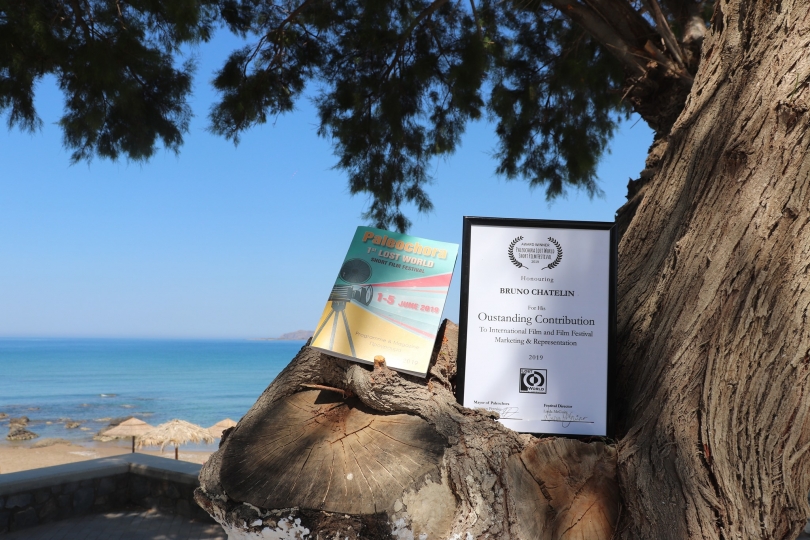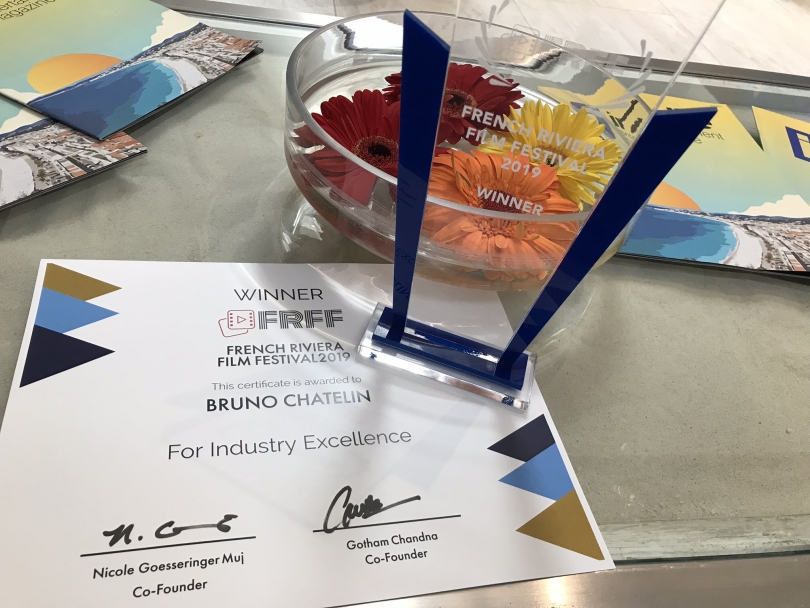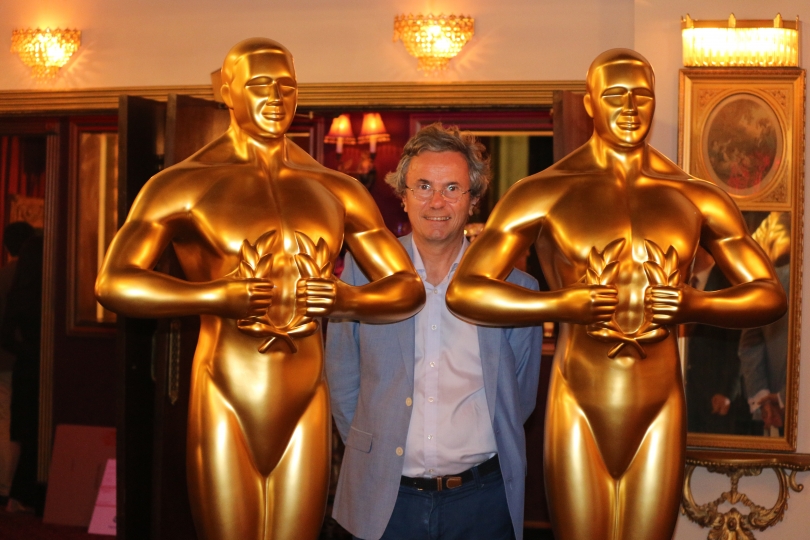Barry Jenkins has emerged as a talent to watch with his debut feature Medicine for Melancholy. The film charts the aftermath of a drunken one-night stand between two African-American twentysomethings, and has been described by the director (when pushed) as "Before Sunset meets Do the Right Thing… with a dash of French New Wave to sweeten the pot." It's a warm-hearted, witty romantic drama with a great indie soundtack, which also succeeds in raising questions about the relationship between race and identity, and in addressing very specifically the consequences of rapid gentrification in San Francisco.
I’ve heard people talking about Medicine for Melancholy as an unexpected gem of the Festival, and everything I've read about it online has been overwhelmingly positive. Have you been surprised by response?
Completely surprised - when we set out to make this film, it was just myself and five friends, and we thought it would just be something we passed around ourselves, and we'd then sell DVDs on the website, so the fact that people have taken to it is just amazing. And it's weird, because the movie is very personal for me, and it's very specific. I didn't realise this but I was always thinking that because I was making the film this way, it would almost be alienating and people would find it tough to get into. But I think that the exact opposite has happened because of the specificity and the uniqueness of the characters and the setting, I think that makes it sort of universal, and people open themselves up to it. That's certainly been the case here – the Q&As have been amazing. We have our last screening today and I'm actually kind of sad, because I’ve enjoyed going in after the film plays, and just seeing the look on peoples’ faces, and hearing their questions and thoughts. The best thing is that the film itself branches off into these questions, they lead to a discussion that's not in the film, which is great - it's an extension of some of the themes that we tackle in making the movie.
One of the things that makes the Festival is that our audiences are so discerning and engaged! You were also involved in the Indiewood is Dead panel event - how far do you believe in the idea that we're seeing a renaissance in 'real' American independent filmmaking?
Well I think the making of my film is a case for that statement. I only got up the nerve to make this movie after reading about Joe Swanberg, and what he had been doing with films like Hannah Takes the Stairs and LOL. I'd graduated from film school and decided that I couldn't make movies because I couldn’t go to Hollywood or convince anybody to give me money, couldn’t raise any private financing. Then I read about Joe and what he was doing, finding whatever money he could and whatever camera he could, and just going off and telling stories - I started thinking "if he can do it, so can I." So right away it was outside of this Indiewood system. I haven't even seen all of Joe’s films - in fact when we started making Medicine I hadn't seen any of his films - but I just knew of the way he was going about doing them, and it really inspired me to get off my ass and go make one as well. And so I wouldn't necessarily call it a renaissance, but I think that something is happening so that more and more people are feeling empowered enough to go off and make films outside the established channels, those that we assume films have to be made within.
I guess it's quite hard to define, with no centralised 'scene' as such - there's a lot of regional filmmaking happening all over the country.
You know what I loved about that panel too? Looking at the list on paper I thought it was odd that the five of us were together, because the films are so different [Barry spoke alongside Kelly Parker (South Main), Ramin Bahrani (Goodbye Solo), Joe Swanberg (Nights and Weekends) and Azazel Jacobs (Momma's Man)]. But then I thought, you know what, this is amazing, because people might assume that these films would be the same – you know, "oh, here are these five people who made these movies outside the Hollywood system, I’m sure they're the same kind of films." They're all so very different, and have such divergent interests, and they're aesthetically divergent. I think that's great – I think that proves that there's a healthy movement going on that's inspiring filmmakers, not necessarily to make the same sorts of film, but just to go out and feel the freedom to channel their own voice.
I think we're seeing something similar in Britain to some extent - some really no-frills filmmaking born out of necessity, but actually producing really interesting work.
It's all completely out of necessity, without a doubt. We made this film because we were in San Francisco, and we knew we had this amazing city we were very passionate about, and we felt that there were certain themes that needed to be addressed that hadn't been addressed on film yet. So we were like "well, we’re here, the city’s here - all we’ve got to do is bring two actors in and we can do this. Within our limitations we can physically pull this off." You're right, it was totally an act of necessity, but the energy that went into the film hopefully ensures that it doesn’t feel like an act of desperation. I'm aware that I always speak about Joe (Swanberg), but he was the beginning of something, which I think is just now reaching its stride.
One thing I like about the film is that it addresses some big issues in a fairly direct way, but without being too heavy-handed - to what extent do you see this is as an issue-driven film?
I described the movie earlier as being very personal and specific, and I think in that way it is autobiographical - not the scenario of two characters having a one-night stand, but many of the conversations in the film, and particularly the things that the character Micah says, which are often things that I have said personally, and I thought it was important to have those things in the film. I was inspired by the Claire Denis film Vendredi Soir (Friday Night). Now I'm not Claire Denis, I can't make a film about two characters, show them having a physical interaction, and have them arrive at the certain level of metaphor that her films do... But what I felt like we could do was put those two characters in a setting, and actually give voice to the setting of San Francisco - to me, that place, that city is just as important to the two characters in this film. This movie wouldn't be the same if it was in Chicago or New York City, and so I felt we had the freedom to bring some of those social issues, and some of those very political issues into the film.
Paul O'Callaghan, BFI

 Chatelin Bruno
Chatelin Bruno 




























